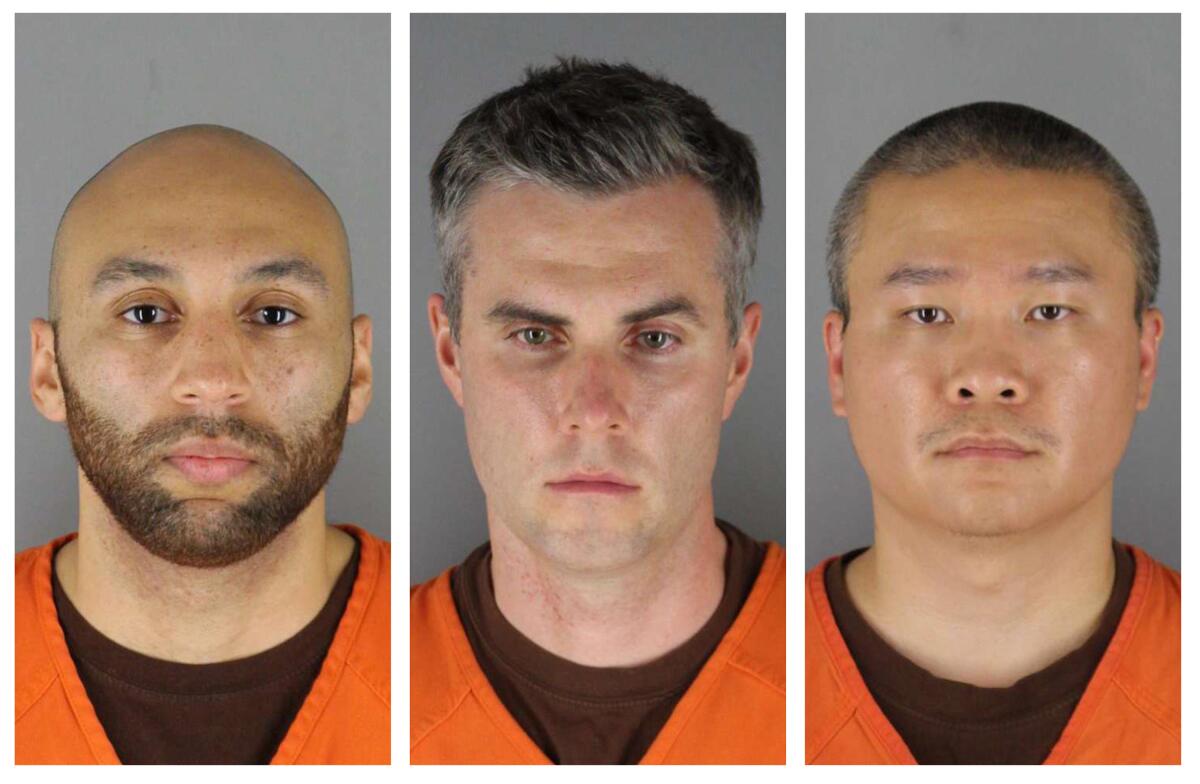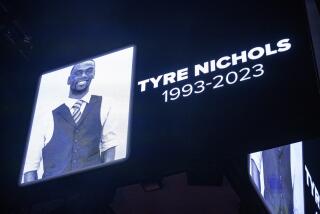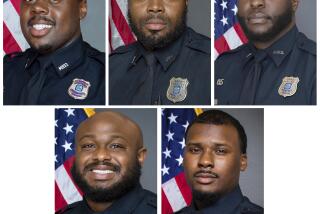Appeals court hears case of 3 ex-officers charged in George Floydâs death

MINNEAPOLIS â Attorneys for the state and for three former Minneapolis police officers charged in George Floydâs death appeared before the Minnesota Court of Appeals on Thursday as prosecutors sought to add an additional charge to the case.
Thomas Lane, J. Alexander Kueng and Tou Thao are scheduled to face trial next March on charges of aiding and abetting second-degree murder and manslaughter. Prosecutors want to add an additional count of aiding and abetting third-degree murder â a charge that defense attorneys say is legally impossible.
The three-judge panel has 90 days to rule. Based on an appeals court decision in February and a related ruling in the case of former Officer Derek Chauvin, which found the February ruling was binding, prosecutors are asking the appellate court to send the case back to the lower court to add the charge.
âWe think the Chauvin case should settle the matter here,â said Neal Katyal, an attorney for the state.
Attorney Deborah Ellis argued for the defense that itâs legally impossible for the three men to be charged with aiding and abetting third-degree murder because third-degree murder is an unintentional act and relies on a defendantâs reckless state of mind, but aiding and abetting must be intentional.
She said the accomplice, principle actor and accessories must all be of the same mind-set, and she pointed to case law that says third-degree murder must be a reckless act with disregard for human life, and carried out with indifference or âalmost a loss or lack of moral consciousness.â
âSo while an accomplice can aid a negligent act or even a reckless act, it takes more than that to aid and abet a third-degree depraved mind because you would have to intentionally aid ... an irrational frame of mind of somebody else,â Ellis said.
Judge Renee Worke called her argument ânovel.â
Katyal said that argument âis just wrongâ and that a defendant can aid a crime of recklessness if he intentionally assists in the reckless act, and knows it is reckless. He said the defense was comparing apples to oranges.
âPrinciple liability focuses on a defendantâs state of mind vis-a-vis the victim. Whereas accomplice liability focuses on an accompliceâs state of mind vis-a-vis the principle. Was the accomplice intending to aid the principle?â He said in this case, there was an intentional decision to aid Chauvin.
Ellis said she is seeking a determination on whether it is âlegally possible to be an accomplice to aid and abet and join. And I disagree with Mr. Katyal that the mind-set can be different. I would suggest this court with the panel of three is in optimal position to decide this legal issue.â
Katyal reiterated that the issue should go before the lower court for debate.
He also said Ellisâ argument was premature because the state could still charge all or some of the men as principle actors, not as accessories. Ellis agreed that if the state did that her argument would be moot.
Floyd, a 46-year-old Black man, died on May 25, 2020, after Chauvin pinned him to the ground with a knee on his neck as Floyd repeatedly said he couldnât breathe. Kueng and Lane helped to restrain Floyd â Kueng knelt on Floydâs back and Lane held down Floydâs legs. Thao held back bystanders and kept them from intervening during the roughly 9½-minute restraint.
Chauvin was convicted last month of second-degree unintentional murder, third-degree murder and manslaughter and is awaiting sentencing. All four former officers also face federal charges accusing them of violating Floydâs civil rights.
Thursdayâs oral arguments were held over Zoom. In addition to Worke, Judges Matthew Johnson and Theodora Gaitas were also on the panel.
More to Read
Sign up for Essential California
The most important California stories and recommendations in your inbox every morning.
You may occasionally receive promotional content from the Los Angeles Times.










